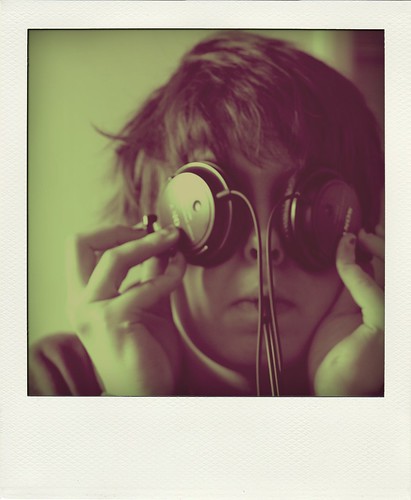Is there a reason why criminals, artists and scientists all become less productive as they age?
e biographies of 280 scientists indicate that the distribution of their age at the time of their greatest scientific contributions in their careers (age–genius curve) is similar to the age distribution of criminals (age–crime curve). The age–genius curves among jazz musicians, painters and authors are also similar to the age–crime curve. Further, marriage has a strong desistance effect on both crime and genius. I argue that this is because both crime and genius stem from men's evolved psychological mechanism which…
1 min read
Can music lessons raise IQ?
e idea that music makes you smarter has received considerable attention from scholars and the media. The present report is the first to test this hypothesis directly with random assignment of a large sample of children (N = 144) to two different types of music lessons (keyboard or voice) or to control groups that received drama lessons or no lessons. IQ was measured before and after the lessons. Compared with children in the control groups, children in the music groups…
1 min read
Do TV commercials portray men as inept?
is content analysis updates the literature regarding gender and the depiction of housework in television commercials by exploring not just the distribution of chores but also the success or failure of chore performance. A sample of 477 commercials featuring domestic chores that aired in a week of primetime television programming on all of the broadcast networks was analyzed. Among the key findings: Male characters' performance of chores was often humorously inept as measured by negative responses from others, lack of…
1 min read
Do playful people get better grades in school?
s: The study examines the relation between subjectively assessed adult playfulness and psychometric and self-estimated intelligence in a sample of 254 students. As expected, playfulness existed widely independently from psychometric intelligence. Correlations pointed in the direction of higher expressive playfulness and numeric intelligence and lower creative playfulness and figural intelligence. However, the size of the coefficients suggests that the results should not be over-interpreted. The same was true for self-estimates of intelligence. Those scoring lower in the total score of…
2 minutes
Are people noticing you more or less than you think they are?
is research provides evidence that people overestimate the extent to which their actions and appearance are noted by others, a phenomenon dubbed the spotlight effect. In Studies 1 and 2, participants who were asked to don a T-shirt depicting either a flattering or potentially embarrassing image overestimated the number of observers who would be able to recall what was pictured on the shirt. In Study 3, participants in a group discussion overestimated how prominent their positive and negative utterances were…
1 min read
Are smart people more likely to binge drink?
oks like it: In a multiple ordinal regression, childhood intelligence has a significant (ps < .00001) effect on adult frequency of both binge drinking and getting drunk, controlling for age, sex, race, ethnicity, religion, marital status, parental status, education, earnings, political attitudes, religiosity, general satisfaction with life, taking medication for stress, experience of stress without taking medication, frequency of socialization with friends, number of sex partners in the last 12 months, childhood family income, mother’s education, and father’s education. I…
1 min read
Do women like things better if they’re expensive?
designed an experiment that examines how knowledge about the price of a good, and the time at which the information is received, affects how the good is experienced. The good in question was wine, and the price was either high or low. Our results suggest that hosts offering wine to guests can safely reveal the price: much is gained if the wine is expensive, and little is lost if it is cheap. Disclosing the high price before tasting the…
1 min read
Do we use TV as a substitute for real relationships?
e current research examines the Social Surrogacy Hypothesis: parasocial relationships in favored television programs can provide the experience of belonging. Four studies support the hypothesis. Study 1 demonstrated that people report turning to favored television programs when feeling lonely, and feel less lonely when viewing those programs. Study 2 demonstrated that experimentally activating belongingness needs leads people to revel longer in descriptions of favored (but not non-favored) television programs. Study 3 demonstrated that thinking about favored (but not non-favored) television…
1 min read







